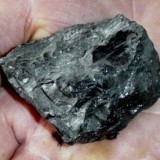As heat records broke by the hundreds across the United States this summer, Michael Bloomberg braved the sweltering temperatures on a hot July morning, mounted a platform in front of the coal-fired GenOn power station in Alexandria, Virginia, and announced to those gathered that his charity, Bloomberg Philanthropies, was giving $50 million to the US Sierra Club to aid its Beyond Coal Campaign.
Bloomberg, mayor of New York, multi-billionaire and founder of his namesake philanthropy organization, was recognizing the “truly impressive” work of the Sierra Club in stopping the construction of at least 153 new coal-fired power stations in the US. The 91 plants that it was able to shut down since 2010 has prevented 114 million tonnes of carbon dioxide equivalent from entering the atmosphere. The $50 million donation will be used to expand the Sierra Club’s efforts to phase out one-third of the existing coal-fired US power plants, to cut coal consumption for electricity by 30 percent by 2020, and to significantly reduce both greenhouse gas emissions and the plethora of toxic pollutants that cause widespread environmental and health damage – in the US alone, the annual human effect of burning coal is estimated at 13,000 premature deaths and health costs of $100 billion. None of these liabilities are weighed when computing the economic value of mining and burning coal.
But Bloomberg’s $50 million gift is more than a gesture of support for the Sierra Club and its ambitious objective of revoking “the social licence for burning coal”. It is a powerful indictment against coal itself, the censuring of a fossil fuel from the Industrial Revolution era that has become the single largest scourge of our planet’s environmental health. Its emissions comprise mercury, cadmium, lead and other neurotoxic heavy metals, together with acid-producing sulphur, radioactive elements, unhealthy particulates, dioxins, arsenic and over three times the weight of coal in carbon dioxide. (Assuming coal is about 90% carbon then, when burned, the 12 atomic mass units of each carbon atom combine with two oxygen atoms of 16 atomic mass units each to become the 44 atomic mass units of carbon dioxide. In a process that probably seems counter-intuitive to non-scientists, the dense 0.9 tonnes of carbon contained in each tonne of solid coal becomes 3.3 tonnes of gaseous carbon dioxide that is dispersed into the atmosphere as a greenhouse gas.)
Bloomberg’s gift of $50 million attaches weighty ethical considerations to both the burning of coal and the mining of coal. Indeed, coal mining is, itself, a massively polluting operation that taints air, water and land – just the initial effects of a process that is culminating in disturbing structural impacts to global climate and ocean acidity. So Bloomberg’s generosity has implications in the distant communities of Campbell River and the Comox Valley where coal mining has become topical and controversial.
How serious is this issue? At the level of principle, the issue is whether these two communities become part of the problem or the solution. Bloomberg’s $50 million gives moral weight to the solution side by helping to reduce the ills caused by coal in the US. Locally, conservation and environmental organizations, together with many other concerned citizens, are expending countless hours examining technical studies, evaluating the risks and warning about present and future damage. They are also challenging a political momentum that would rather acquiesce to a momentary temptation than consider the long-term perspective. Any concern about whether or not a mining corporation could provide enough “financial security to ensure waste water treatment from the [Quinsam] mine site will be treated in perpetuity…” (Courier Islander, Aug. 19/11) is completely unaware of the duration of “perpetuity” – the comment does, however, acknowledge the risk. Reasonable prudence would never consider subjecting future generations to such a persistent and onerous burden.
At the practical level, when Quinsam Coal cannot even manage its existing wastes, then the prospect of allowing further mining of an even more polluting grade of coal simply boggles any sense of social and environmental logic. And for what? On the positive side is a mere four additional years of local jobs. On the negative side is 1.7 million tonnes of dirty coal, 5.6 million tonnes of carbon dioxide emissions, and the likelihood of perpetual acid seepage into a healthy, fish-bearing watershed that is a signature attraction of the Campbell River region. The balance is an unqualified “no” for more coal mining. And if any doubt remains, consider provincial authorities that have been both incapable and unwilling to enforce whatever meagre environmental regulations they might impose.The proposed Raven mine in the Comox Valley invites the same risks and hazards.
Coal mines have another shortcoming. They expose and release methane, a greenhouse gas that is about 20 times more potent than carbon dioxide. The Raven mine is projected to exhaust 127,500 cubic meters of methane per day into the atmosphere. The Quinsam mine, depending on its relative size, would exhaust an equivalent amount. These emissions produce consequences that our planet can no longer absorb or ameliorate.
Michael Bloomberg is just one of many people who now grasp the disastrous implications of mining and burning coal. In his speech to the people who had gathered on that hot July morning in Alexandria, Virginia, he said we must “fight climate change and bring about our clean energy future.” By offering $50 million to this cause, he said, “I am doing my part to move our country Beyond Coal. Are you with me?”
“Are you with me?” is a clarion call that is now echoing around the planet, a moral imperative to anyone who cares about the health of our bodies and the well being of our oceans, rivers, lakes and air. Listen and it can be heard in even the communities of Campbell River and the Comox Valley. The future is now. And the time has come for us to become the change that we want to happen.




